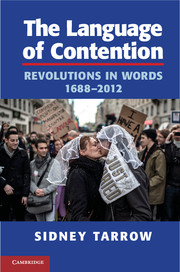Book contents
Conclusions
Published online by Cambridge University Press: 05 June 2014
Summary
Thomas Paine had been in Philadelphia for less than two years when he wrote the following lines:
These are the times that try men's souls. The summer soldier and the sunshine patriot will, in this crisis, shrink from the service of their country; but he that stands it now, deserves the love and thanks of man and woman. Tyranny, like hell, is not easily conquered; yet we have this consolation with us, that the harder the conflict, the more glorious the triumph.
We cannot know how much Paine's words actually stirred the hearts of the American colonists or whether he was simply registering in more eloquent terms what they were already feeling. We do know that, in the three months after the publication of Common Sense, an estimated 100,000 copies were sold in a population of less than two million nonslave inhabitants. Historian Gordon Wood describes it as “the most incendiary and popular pamphlet of the entire revolutionary era” (Wood 1991). We still hear the echoes of Paine's words in political rhetoric today: how freedom, banished from the Old World, found a home in the new; how Americans should join hands across the ties of party and faction; how the “good citizen” should be a resolute friend, a supporter of the rights of man and of the free and independent states of America.
- Type
- Chapter
- Information
- The Language of ContentionRevolutions in Words, 1688–2012, pp. 190 - 212Publisher: Cambridge University PressPrint publication year: 2013



